Pathway: Human & Public Services
Explore how people think, feel and interact, both as individuals and as groups.
Students in this pathway learn about discovering the past, solving social issues, teaching, improving quality of life, and planning for the future. Those who thrive while helping others may find this pathway ideal.

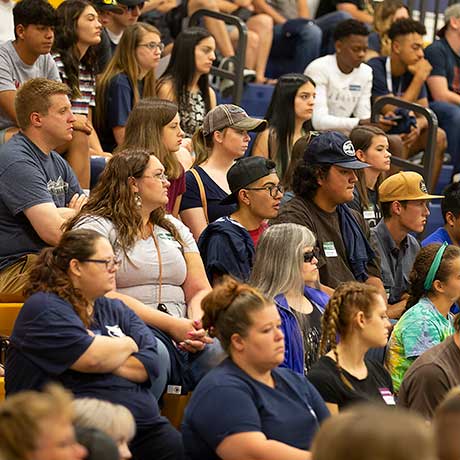
Human & Public Services Program
The Human & Public Services Program is designed for students who wish to explore coursework within this broad field. Students wanting to study Anthropology, Criminal Justice, Education, History, Psychology, Sociology, and other related fields can start here and transfer to a four-year university to continue their education.
The Pathway Program is also great option for students who are unsure which Human and Public Services program is best for them. Students can easily transfer into a specific Human and Public Services program after starting here.
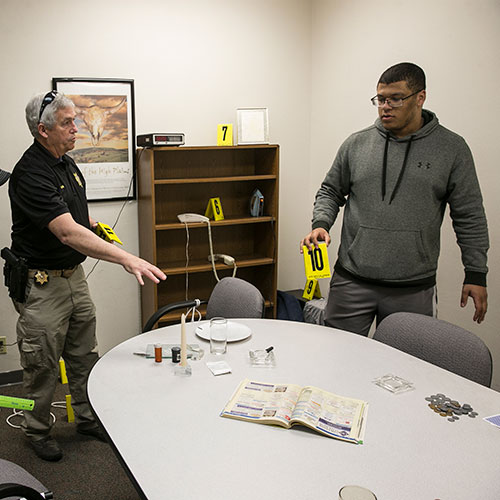
Criminal Justice Program
Students in this program learn about the American criminal justice system: law enforcement, courts and corrections. They study the basics of criminal law, criminology and juvenile justice. Students have the opportunity to participate in a practical crime scene class, ride-alongs with law enforcement, and visit a correctional institution.
Graduates may wish to continue their education at a four-year university. They often work in probation, parole, victim services, court administration and law enforcement.
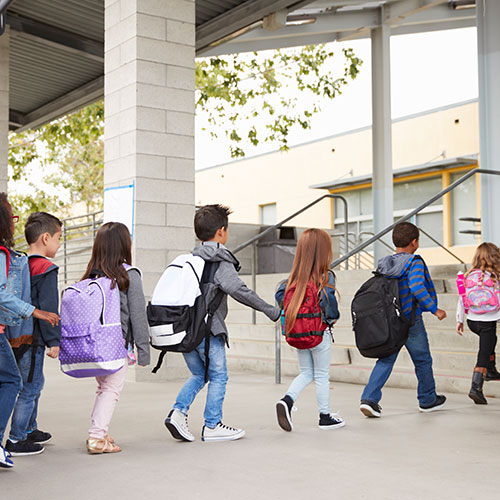
Elementary and Early Childhood Education Program
Early childhood educators play a critical role in the development of children - helping them build a strong foundation for future learning, behavior and health. Students in the Elementary and Early Childhood Education Program learn how to create engaging lessons and activities to meet the needs of diverse learners. They also participate in classroom observations and a practicum in a school setting.
After completing the education program at LCCC, students must transfer to a four-year institution to pursue a bachelor's degree before applying for teacher licensure. Graduates often find jobs in early childhood and elementary schools.

Legal Studies Programs
Paralegals work under the supervision of attorneys to research and prepare for trials and hearings, interview clients, draft legal documents and provide administrative duties. This program prepares students with the technical skills and knowledge necessary for them to perform successfully and ethically as paralegals. The program is approved by the American Bar Association.
Graduates may work in law firms, state or federal government offices, financial institutions and title companies.
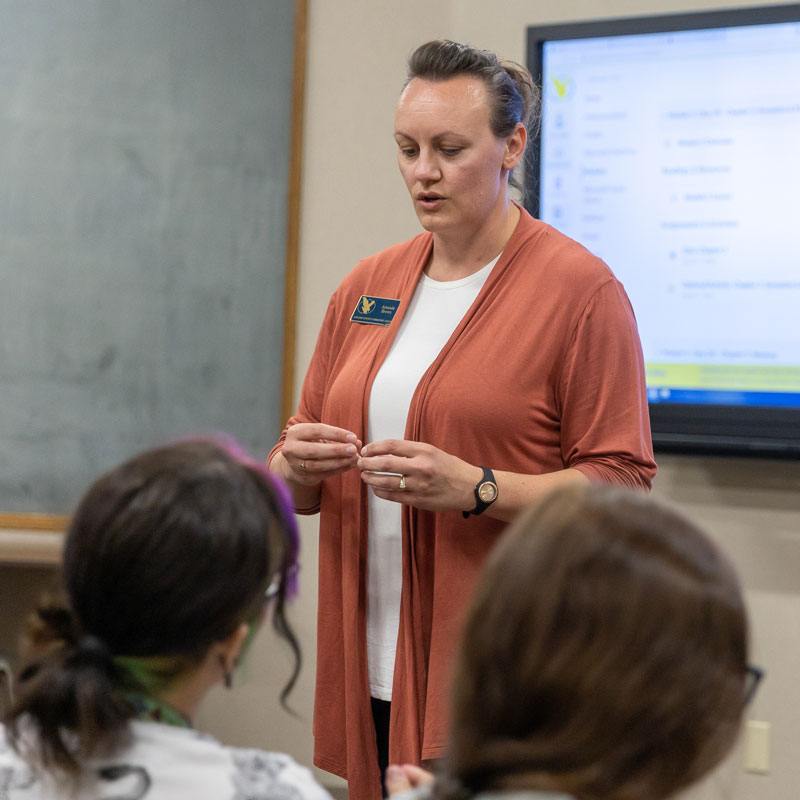
Psychology Program
Curious why people do what they do? Students in this program explore a broad range of psychological fields, including child development, abnormal behavior, study of the brain and research methods. They also engage in activities like writing case studies of abnormal behavior, observing children, and performing an original research study.
Employment in psychology typically requires a master's degree, so LCCC graduates will need to continue at a four-year institution. People who study psychology often work in the helping professions, such as counselors, social workers, therapists and psychologists.

Secondary Education Program
Secondary Education Programs typically develop educators to teach in middle school and high school, or beyond. Often educators at this level will specialize in a subject, or subjects, of their choosing. Students in the education program learn how to create engaging lessons and activities to meet the needs of different learners. They also participate in classroom observations and a practicum in a school setting.
After completing the education program at LCCC, students must transfer to a four-year institution to pursue a bachelor's degree before applying for teacher licensure. Graduates often find jobs in middle and high schools.
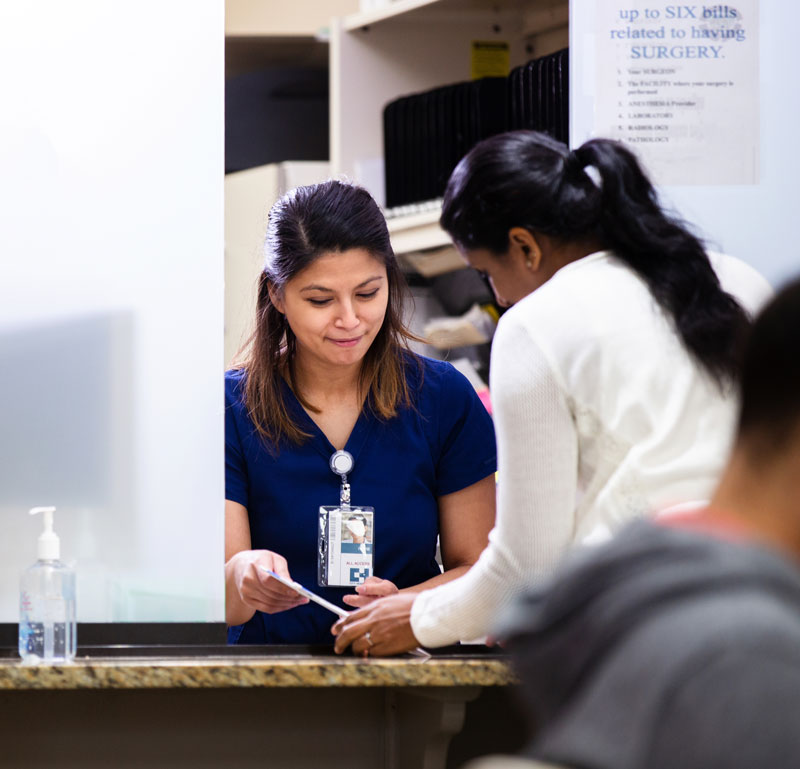
Spanish in the Workplace Program
Almost half of the incoming population in Wyoming is Spanish-speaking. It’s critical that businesses and those providing services are able to communicate with all of the state’s residents. The Spanish in the Workplace Program is a one-year intensive curriculum designed to teach workplace conversation and cultural norms to increase understanding and inclusivity.
This program may be beneficial for those in education, healthcare, law enforcement, social work and other areas.
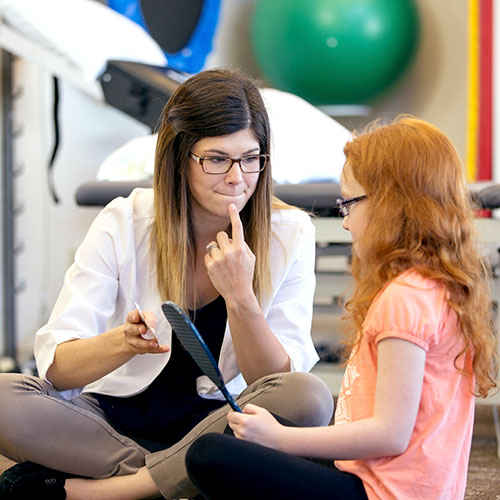
Speech-Language Pathology Assistant Program
Speech-Language Pathology Assistants work under the direct supervision of licensed or certified speech-language pathologists to administer speech, language and hearing screenings; assist in communication assessments; provide articulation and language therapy services; and assist with documentation of services. This program provides practical experience in working with adults and children in a variety of settings.
Speech-Language Pathology Assistants may work with patients in private settings, speech and hearing clinics, or physicians' offices.
